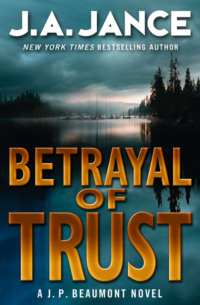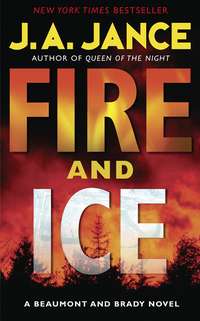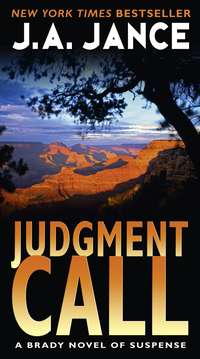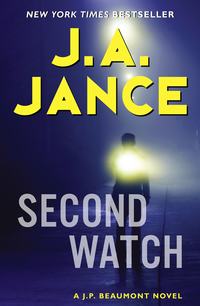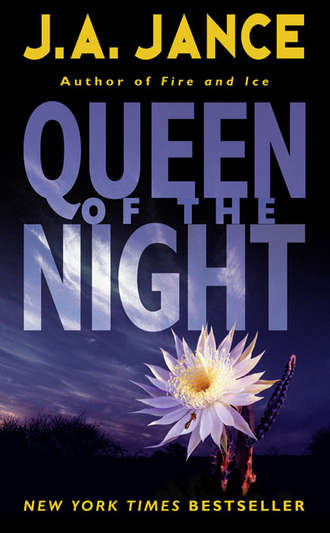
Полная версия
Queen of the Night
Better one of those than an ER, he thought.
Once he saw Jack Tennant pull into the garage and park next to his wife’s aging green Lincoln, Jonathan went back to Urgent Care to have someone look at his arm.
They did more than look. With a doc in a box supervising the procedure, a physician’s assistant and a nurse lanced the wound, cleaned it, and then put the arm in a sling. They also gave Jonathan a prescription for a course of antibiotics. He gave the Urgent Care folks Jack Tennant’s name and a phony social security number. When he went to the closest Walgreens to have the prescription filled, he wasn’t at all surprised to find that they had Jack Tennant’s name on file in their pharmacy.
“Do you want to leave this on express pay?” the clerk asked.
“Sure,” Jonathan said. Sitting waiting for the prescription to be filled, it pleased him to think that his mother’s husband’s Medicare account would be billed for Jonathan’s medications. He also doubted anyone would catch on to the switch for a very long time, if ever.
With his prescription in hand, Jonathan headed back to his observation post. On the way, though, he stopped at Sonic and stocked up on fast food. He didn’t know how long he’d have to wait before he found out what was going on, but if Jack and Abby Tennant were planning on an intimate dinner date out in the desert, Jonathan was determined that there would be at least one uninvited guest in attendance.
Tucson, Arizona
Saturday, June 6, 2009, 4:30 P.M.
92º Fahrenheit
When Jack finished smoking his cigar, he went back inside the house. In the family room he found a tray loaded with drinks laid out on the counter in the wet bar. On it were glasses, a pitcher of premixed Bloody Marys, a bucket of ice, a bottle of Tabasco sauce, and a plate of celery sticks for stirring, as well as a dish of salted peanuts. The peanuts were for Jack. He loved them. The Tabasco sauce allowed them to season each drink to taste. Abby liked her Bloody Marys spicy enough that sweat would pop out on her forehead as she drank them. Jack preferred a somewhat milder recipe.
Jack found Abby sitting on the couch with her newly polished toes tucked up under her. She appeared to be lost in contemplation. He paused long enough to pour his own drink before joining her on the couch.
“A penny for your thoughts,” he said, touching her glass with his.
She smiled at him. “Just remembering,” she said. “Thinking about what my life was like five years ago.”
“You remember that day, too?” he asked.
She nodded. “Every detail,” she said. “I woke up that morning up to my eyelids in party problems. It was the first time I was completely in charge of the bloom party, and I was totally focused on that. For a change I was so busy doing other things that I was finally able to forget how much I hated being divorced. I believe it was the first time that ever happened.”
“And you never saw this coming?” he asked, smiling at her. “You never saw us coming?”
“Never,” she answered. “If I’d had an inkling of how much my life would change that day, I would have been more petrified about that than I was about the party. I might have been too nervous to get out of bed.”
“I don’t think so,” Jack said, shaking his head. “You can’t convince me you were scared of anything. The moment I saw you, I was smitten. I remember telling myself, ‘Wow! There’s one put-together lady. She’s ten feet tall and bulletproof.’ ”
Widowed for more than a year, Jack Tennant had stopped off in Tucson to visit his brother and sister-inlaw as one of the last stops at the end of a year-long solitary road trip, one he told people he had taken in order to find himself.
Five years earlier, he and Irene had been on the brink of divorce when Irene’s doctor had delivered the bad news—a diagnosis of ovarian cancer. Their health plan from his years in the insurance world was a good one, but it was tied to his retirement. Had they divorced, Irene’s situation wouldn’t have been covered.
Because of that, they had stuck it out. Or rather he had stuck it out until the bitter end. And it had been bitter. Irene had told him time and again during that time that if it hadn’t been for the insurance coverage, she would have left him in a heartbeat. Having that thrown in his face while he’d been trying to be a good guy had hurt, and the hurt had been worse every time he heard it.
Once Irene was gone, he had sold the house in California—against everyone’s advice about not making any kind of major decisions too soon after the death of his spouse. In the end it turned out Jack was right and everyone else was wrong. He had unloaded their property in Pasadena for a tidy bundle long before the economic downturn gutted the California real estate market. Then he put the money in the bank, bought himself a brandnew Lexus, and hit the road.
For the better part of the next year he was a vagabond, setting off on a grand-circle tour, visiting places on a whim and as weather permitted, crisscrossing the country and visiting all the interesting and quirky places Irene had never wanted to visit. She was especially opposed to anything resembling a tourist trap, as she called them.
In the course of his travels Jack had put 25,000 miles on his no longer new Lexus. He had motored to Yosemite in California, Ashland and Crater Lake in Oregon, Mount St. Helens and the rain forests of western Washington, Yellowstone in Wyoming, Glacier in Montana, Zion in Utah, the Black Hills of South Dakota, the pristine lakeshore of upper Michigan, Niagara Falls, Independence Hall in Philadelphia, and the battlefield at Gettysburg; Washington, D.C.; Charleston, South Carolina; Branson, Missouri; the Alamo in Texas; as well as Albuquerque, Roswell, and Carlsbad Caverns in New Mexico.
He had called Zack from Albuquerque, just to say hello. He hadn’t planned on stopping by to see him, but Zack had shamed him into it.
“If you’re on your way back to California, we’re right on the way.”
That wasn’t exactly true since Albuquerque was a lot farther north, but Jack had allowed himself to be persuaded mostly because he wasn’t eager to get back to California. His kids still lived there, but Jack no longer did.
The fateful phone call had taken place toward the end of June. At the time Jack had known nothing about Zack’s and Ruth’s involvement with Tohono Chul. As docents they would have lots to do the night of the bloom party, but they didn’t mention the possibility of a party on the phone when he gave them his ETA. In hindsight he now understood why that was—they hadn’t known exactly when the party would take place because no one knew exactly when the night-blooming cereus would do its thing.
He had driven up to their house at nearly five o’clock on a very hot June afternoon. Zack and Ruth had ushered him and his suitcases into the house. Then, after a little bit of small talk and giving him half an hour to shower and change clothes, they had loaded him into the car to go to the park to, of all things, a flower show.
At least that’s how Jack understood it. Jack Tennant had learned several things about himself during his months of solo traveling. Irene had always loved flowers—all kinds of flowers—but Jack didn’t much care for them. His low opinion about them hadn’t improved, not after visiting the Rose Festival in Portland, Oregon, nor after seeing the autumn leaves in New England and the cherry blossoms in Washington, D.C. So although Jack had no interest in flowers and wasn’t particularly excited about the one they were raving about, he behaved as a polite guest should and went along for the ride.
Once inside Tohono Chul, Zack had raced off to make sure the luminarias that lined the park’s dirt paths that night stayed lit. Ruth had a job to do, too, in the gift shop, so she handed Jack a glass of punch and introduced him to Abby Southard. Then his sister-in-law had taken off, leaving Jack and Abby chatting.
Not long after that, a rotund old Indian man dressed in boots, jeans, and a splashy black cowboy shirt took to the microphone. For the next half hour he regaled the people in the audience with a story—a Native American legend—about the supposed origin of the flower in question. Since Jack had yet to see a night-blooming cereus with his own eyes, he supposed this was a lot of fuss over nothing.
As this grown-up version of story time ended, one of the volunteers had hurried up to notify Abby Southard that they were about to run out of punch and ice. She had no more than dispatched someone to the nearest grocery store to handle that crisis when a frantic guest had appeared with the disturbing announcement that a rattlesnake seemed to have taken up residence close by one of the blooms.
On the way to the park, Zack had explained that Tohono Chul was devoted to preserving native desert flora. It was only natural, then, that the park would preserve some of the local fauna as well. Without turning a hair, Abby explained to Jack that rattlesnakes were as likely to show up at the Queen of the Night party as people were. Then she used a handheld walkie-talkie to summon a man with a snake-stick to take charge of the offending reptile and move it to a somewhat less traveled part of the park.
Jack had been intrigued. He had never met a woman who could handle both a punch crisis and a rattlesnake crisis at the same time. Irene had been petrified of snakes—and lizards and spiders and bees and wasps. By comparison Abby had seemed downright fearless, and good-humored besides.
“So you have to wrangle both the punch bowl and the rattlesnakes?” he had asked.
“Yup,” she said with a grin. “That’s me all over.”
Fascinated, Jack had spent most of the rest of the evening hanging out with her, and it was with Abby Southard at his side that he had seen his first-ever night-blooming cereus. Truth be told, he wasn’t that impressed—with the flower, that is. Oh, he managed a polite ooh and aah over the size of it and over the smell—which didn’t do that much for him, either, but he could see that Abby was enchanted with the night-blooming cereus, and he was enchanted with her.
He made like the old woman in the Indian legend and put down roots right away. After only two nights in Zack and Ruth’s guest room, he had taken himself off to one of those corporate long-term-stay hotels, the kind that come furnished with everything from sheets and pillows (bad ones) to pots, pans, and dishes.
Zack thought paying rent was a bad idea. He said that if Jack was going to stay around Tucson, he ought to find himself a real condo to buy, maybe one on a golf course. But Jack had no interest in going on a real estate hunt. He had set his sights on some other prey, and Abigail Southard was it. Because she came with a perfectly nice home of her own, he saw no need to fork over money to buy another. He figured two would be able to live as cheaply as one, especially if they had more money in the bank.
Jack Tennant and Abby Southard had met on the twenty-sixth of June and had married on the twenty-sixth of July. Everyone had told them it was stupid to jump into matrimony that way. Zack and Ruth had both disapproved, and so had Abby’s older sister, Stephanie.
“What’s the big rush?” Zack had asked. “I mean, at your age, it’s not as if you knocked her up or something.”
Emmy and Lonnie, Jack’s own forty-something kids, hadn’t much liked the arrangement, either. They had both been invited to the justice of the peace ceremony, and both had declined. Jack suspected that Abby’s son, Jonathan, would have taken much the same position, but he had been estranged from his mother for years—in fact, he hadn’t spoken to her in over a decade. The good news there was that Jack and Abby hadn’t had to deal with Jonathan’s disapproval along with everyone else’s.
All the naysayers were still nay-saying, waiting for the “hurried” marriage to end in disaster. In the process Zack and Ruth Tennant had pretty much removed themselves from Jack and Abby’s circle of friends. They had even gone so far as to sever their connections with Tohono Chul, including resigning their docent positions. Abby had worried about that, but their departure hadn’t fazed Jack.
“So much for what the relatives think,” he had told her with a grin. “If they can’t take a joke, screw ’em. The only thing that matters is what you and I think. By the time we met, both of us were old enough to understand we don’t have all the time in the world. Let’s make hay while the sun shines.”
And they had done so. On the fifth anniversary of their meeting and one month short of their fifth wedding anniversary, the two of them were as happy as they had ever been. They were better matched, too—better matched than Jack had been with Irene, once he retired, and than Abby had ever been with Hank.
Irene hadn’t been that bad initially, he reminded himself. When Jack had been a young hotshot executive, working his way up, she had been a powerhouse. She had been a good mother to his two now grown children. When the kids were little and Jack was putting in the long hours at work, Irene had been the parent who had done most of the child rearing. By the time the kids were out of the house, however, and once Jack retired, he and Irene had discovered that they had nothing in common. Not only had they fallen out of love, they had fallen out of like as well.
For Abby and Jack Tennant, love really was lovelier the second time around. When they were out in public and holding hands, people sometimes said they were cute. That didn’t bother Jack, either. He still felt like a damned newlywed, and he didn’t care who knew it.
Then there was the matter of quiet. The two of them had been sitting there for some time, sipping their drinks in companionable silence while watching several hummingbirds buzzing around the colorful feeder Abby had hung in the mesquite tree outside their front door. It seemed to Jack that Irene had never had a quiet, introspective moment in her life. There were the times when she had given him the silent treatment—sometimes for days on end—but that was always the calm before the storm when some big blowup was brewing. It wasn’t a comfortable silence so much as an ominous one.
During the time Jack had been alone and in the years since he and Abby had been together, Jack had come to relish times like these when simply being in the same room together was enough.
“What time is our reservation?” Abby asked, emerging from her own reverie and breaking into Jack’s.
“We should probably leave around six,” he said. “It’ll take an hour to get there.”
“What should I wear?”
In fact, Jack had already handled that issue. Abby had a jumpsuit that she’d had made to use for outdoor workday events at Tohono Chul. Jack had smuggled that, along with Abby’s pair of hiking boots, into the trunk, along with the packed hamper and cooler. Hiking or work clothes would be far better suited for what he had in mind than some dress-up outfit that would snag on the first bit of mesquite that got in Abby’s way, but telling her that would give the game away. Jack was determined to keep the secret until the very last minute.
“As long as you wear the blindfold,” he said, “you can wear anything you want.”
Abby had one of those beauty-mask things for sleeping, one that would fit over her ears without messing up her hair. He had told her in advance that the blindfold was essential.
“I thought you were kidding about that.”
“Nope,” he said. “Not kidding.”
Abby gave him a kiss and then stood up. “All right,” she said. “I think I’ll go have a little lie-down. A nap would be good for what ails me.”
“Mind if I join you?” Jack asked.
“You’re welcome, as long as you’re there to sleep. No funny business.”
“Of course,” he said, but he had his fingers crossed when he said it.
As he followed Abby back to the bedroom, he suspected she knew that all along.
Casa Grande, Arizona
Saturday, June 6, 2009, 4:00 P.M.
96º Fahrenheit
Geet was asleep again and Brandon was dozing on the sofa when Sue Farrell came back home. She looked like a new woman. Instead of going to see a movie, she had stopped off for a haircut. She looked altogether better.
“How are things?” she asked anxiously. “I was gone longer than I planned.”
“Once he woke up, we talked for the better part of an hour,” Brandon told her. “After that he went back to sleep.”
She nodded. “An hour of conversation is about as much as he’s good for. Did he ask for more pain meds?”
“No,” Brandon said. “He said they make him too groggy.”
“Being groggy is better than being in pain,” Sue said.
Of course that was a matter of opinion. For right now, Brandon Walker was willing to take Geet Farrell’s word for it over Sue’s.
Brandon lugged the Ursula Brinker evidence box out of the house and loaded it into the back of his Honda CRV. It was a relief to get out of the sickroom—to walk away from the hopelessness and heartbreak that was everywhere in Geet and Sue Farrell’s home. He started the engine. As he waited for the air-conditioning to cool things off enough so he could touch the steering wheel, Brandon thought about checking in with Diana, but then he remembered she wasn’t home. Lani had called last night to invite her mother along to Tohono Chul for lunch, after which they would hang around the park for the major evening do, held each year in honor of the night-blooming cereus.
Brandon had two reasons to be happy about that. Number one: It meant that Diana would be out of the house and doing something fun for a change. Number two: He, Brandon, didn’t have to go along. He’d had tea on occasion at Tohono Chul’s Tea Room, and it wasn’t his kind of place. As for the party? That wasn’t his kind of thing, either. The people there would see to it that Diana was treated as a visiting dignitary, and that was fine, but there were times when Brandon could take only so much of being Mr. Diana Ladd.
Thinking about the Tea Room, however, reminded Brandon that he hadn’t eaten since breakfast. It was now almost four o’clock in the afternoon—a very long way past his usual late-morning lunchtime. Once he left Geet and Sue’s neighborhood, he found himself on one of Casa Grande’s larger multi-lane streets. He drove past the first Burger King he saw without even slowing down, choosing instead to pull in at a Mexican food joint called Mi Casa Ricardo.
It was the kind of place Brandon Walker liked—family-owned and unpretentious. He ordered iced tea, a cheese crisp, and carne asada fajitas. He knew he was ordering too much food, but he counted on having some leftovers to take home to Damsel, who firmly believed that restaurant doggie bags had been invented solely for her benefit.
His cell phone rang as he took the first bite of cheese crisp. “How was it?” Ralph Ames asked.
Brandon knew Ralph wasn’t referring to the cheese crisp. Brandon had called Ralph in Seattle as soon as he had received Sue Farrell’s phone call summoning him to Casa Grande.
“Pretty rough,” he said.
“How long do you think he has?” Ames asked.
“Not long,” Brandon answered. “He’s put up a hell of a fight, but we’re down to short strokes. I’d say a couple of weeks at the most. Maybe only days.”
“I had been planning to come down to Arizona the end of next week,” Ralph said. “I’ll see if I can move that up some. I’d like to see him before it’s too late.”
“He gave me the Brinker file,” Brandon said.
“Good,” Ralph said. “I expected that he would. You’re the logical successor on that one. Weeks ago Geet mentioned that he had a new lead. I know he was hoping he’d be able follow up on it himself, but of course—”
“Right,” Brandon said. “The clock wound down before he had a chance. I told him I’d look into it right away. There’s nothing I’d like better than to tell Geet in person that we finally have some answers.”
Конец ознакомительного фрагмента.
Текст предоставлен ООО «ЛитРес».
Прочитайте эту книгу целиком, купив полную легальную версию на ЛитРес.
Безопасно оплатить книгу можно банковской картой Visa, MasterCard, Maestro, со счета мобильного телефона, с платежного терминала, в салоне МТС или Связной, через PayPal, WebMoney, Яндекс.Деньги, QIWI Кошелек, бонусными картами или другим удобным Вам способом.


